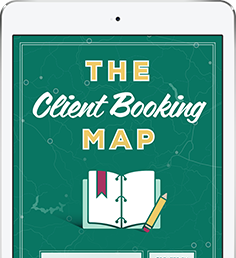
I’ve always been a writer. My earliest memory of the joy of writing was at age 8, and thanks to encouragement from my parents and a few amazing teachers, I ended up working in communications years later.
Aside from a brief stint of wanting to be a psychiatrist, I always wanted to be writer. Anything else was simply unthinkable.
Just because I’m a writer to my core, doesn’t mean I’m not constantly focusing on improving my skills. Just the opposite. I’m a lifelong student of writing, always learning about different techniques, disciplines and types of materials.
Every time I tackle a new type of writing, I’m mindful of the the potential for me to fall into the curse of knowledge and assume I’m already a great writer so I already know it all. A few years ago it was learning conversion copywriting, last year it was building on that by studying digital psychology with a leader in the field.
In working with clients over the years, I’ve realized that while people can hire me to write for them, there’s always going to be an inescapable amount of writing in any position. Which, if you’re not a writer by nature, can be stress-inducing.
Then there’s the fact that many of us are decent writers. We got through school or our corporate jobs well enough, and we can write a mean essay on mesopotamian history or a chem lab report.
Writing for the web is a whole different thing, especially if you want web copy that sells. Completely different. No matter how good of a writer you may be – there is ALWAYS room for improvement.
Here are six ways to improve your writing for the web quickly:
Structure is Everything
Writing for the web requires a different writing style than you’ll implement anywhere else. First off, you need to remember that people are skimmers on the web so you need to use subheadings often, short paragraphs and bullets. Break up your copy as much as possible.
Then there’s the whole flow part of structuring copy for the web. Start to pay attention to the order of different elements on sales pages, about pages and even home pages. The cardinal sin of writing for the web (in my opinion at least) really comes down to not understanding what information to provide and when. A little studying here can go a long way and save you from copy that just doesn’t work.
Tell Stories
Want to instantly make your writing more engaging? Tell stories. It sounds simple, but it’s truly your secret weapon when it comes to making your writing more interesting.
Our brain processes stories differently than facts and when you share a story, it’s much more memorable. Start by sharing examples and personal anecdotes to bring your writing to life.
Have a Great Lead-In (aka The Hook)
Think of the last book you read. I’m willing to bet you were hooked or ready to quit after the first chapter.
You need to do the exact same thing with your writing. It may be an email subject line, headline or a title for a report, but you need a great lead-in. Otherwise, you risk losing your reader.
To instantly improve your lead-in, put yourself in the reader’s shoes. How can you make it engaging and capture their attention?
Know Your Reader
The best writing connects with the reader on a deeper, emotional level. The reader may not even know it’s happening, but they find something that appeals to them on some level.
To make that type of connection, you need to really understand what your reader needs from you. What are they thinking, feeling, judging or sensing? That holds the key to winning the heart and mind of your reader.

Less is More
The world would be a much better place if we all just got to the point, especially in those 1000 word emails in your inbox from two weeks ago that you’ve yet to read.
Strive for brevity. Provide enough context for your reader to understand what they need to know without drowning them in the details. Context is king, when it comes to writing your copy, but the devil is truly in the details. Too many choices or too much information and the brain simply shuts down.
Write a Shitty First Draft
Getting your words out can feel like such a chore when writing isn’t your thing, which is why the best thing you can do is to embrace the first draft.
Focus on writing a first draft with no judgements and then go back to shape your content further. This is harder than it sounds, but if you just type out what you want to say then come back to it a bit later, you’ll produce a better end product and save time in the process.
The Recap: Develop Your Writing Skills for the Web to Write Copy That Sells
Writing web copy that sells is a skill set that needs to be developed over time. Even if you’re a good writer, it’s always a work in progress so it takes some time to develop your skills.




